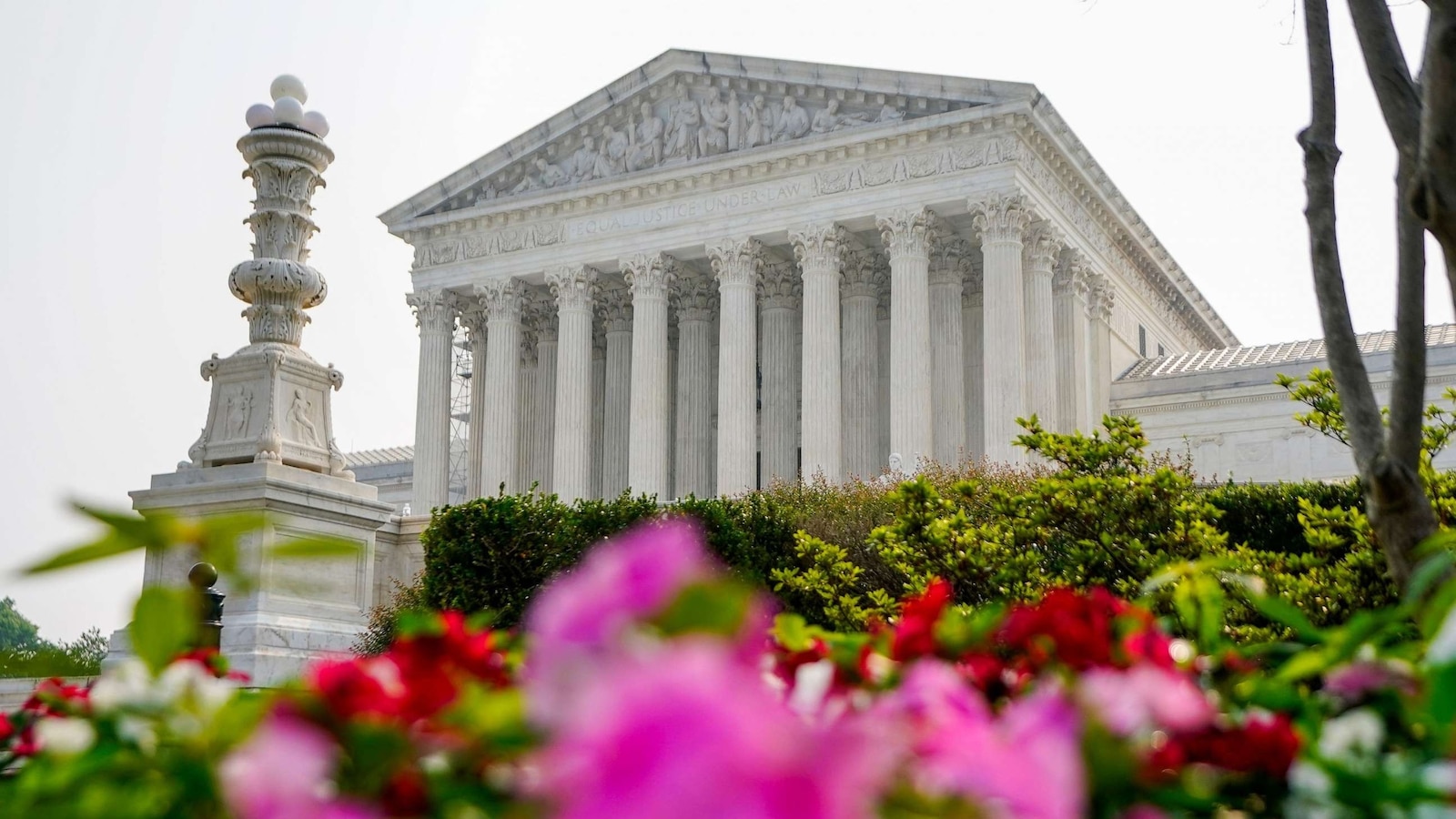The Supreme Court on Tuesday appeared divided over whether the federal government had properly charged hundreds of alleged Jan. 6 rioters with felony obstruction, with several justices voicing concern that prosecutors’ broad interpretation of a financial crimes law could be weaponized against political protests.
The high-stakes case, brought by a former Pennsylvania police officer facing charges for his alleged conduct at the Capitol in 2021, could upend the convictions and sentences of more than 300 defendants — and could also potentially invalidate two of the four charges against former President Donald Trump brought by special counsel Jack Smith.
At issue in the case of Fischer v. United States is whether the Sarbanes-Oxley Act of 2002, enacted in the wake of the Enron scandal to prevent the destruction of evidence in financial crimes, can be used against alleged participants in the events of Jan. 6, 2021, which disrupted congressional certification of electoral votes from the 2020 presidential election.

The US Supreme Court in Washington on June 29, 2023.
Shawn Thew/EPA via Shutterstock, FILE
The statute makes it a crime to “alter, destroy, mutilate or conceal a record, document or other object” in an effort to impair an investigation. But it also includes a catch-all provision for conduct that “otherwise obstructs, influences or impedes any official proceeding.”
Joseph Fischer’s defense attorney Jeffrey Green argued the provision should not apply to his client.
Biden administration Solicitor General Elizabeth Prelogar said the text of the statute couldn’t be clearer and that Congress intended it to be expansive.
The high court’s three liberal justices appeared, at times, to lean toward a plain reading of the statute that would allow most, if not all, of the charges to stand. But members of the court’s conservative majority seemed more skeptical, focusing on the lack of prosecutions under the same law for matters unrelated to financial or documentary crimes.
Chief Justice John Roberts indicated the obstruction language in the law must be considered in context.

Rioters loyal to President Donald Trump rally at the Capitol in Washington on Jan. 6, 2021.
Jose Luis Magana/AP, FILE
Joseph Fischer was a participant in the “Stop the Steal” rally on Jan. 6 who faces prosecution for allegedly being part of the crowd that entered the Capitol as Congress was attempting to certify the 2020 election results.
The statute carries a 20-year maximum sentence, though most Jan. 6 defendants have received far more lenient penalties in addition to being charged with other, related crimes.
The court could uphold lower court rulings that affirmed the government’s broad interpretation of the law, or it could narrow the obstruction statute in some way or otherwise make clear it doesn’t apply to the circumstances of Jan. 6.
A decision in the case is expected by the end of June.

